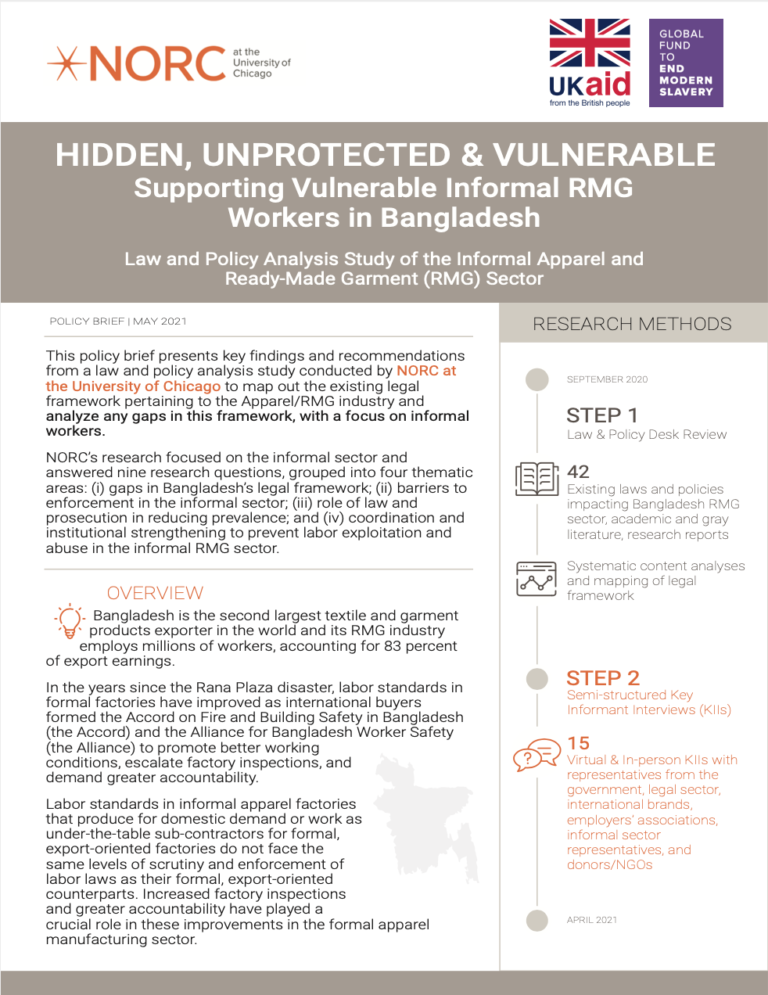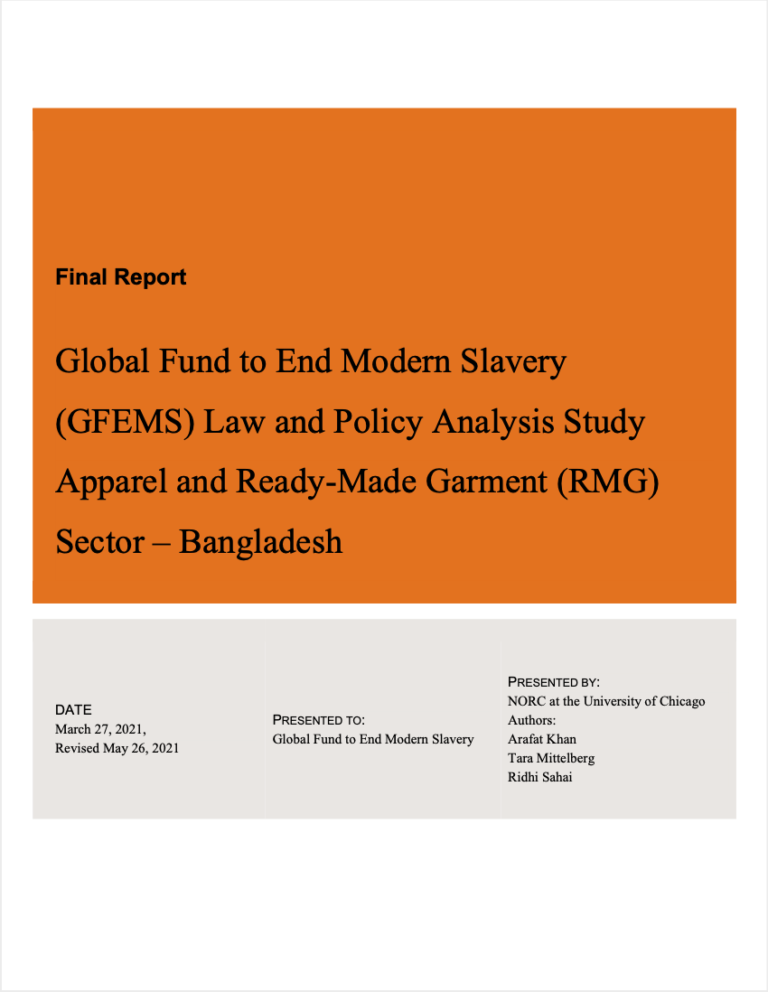An analysis of Bangladesh’s existing legal standards for the apparel industry reveals significant gaps in protections for workers in the informal ready-made garment (RMG) sector. This study, conducted by NORC at the University of Chicago with support from GFEMS and the UK’s Foreign, Commonwealth and Development Office, provides recommendations on how government stakeholders, brands, and factories can address these gaps to improve labor conditions for workers in the informal apparel industry. This study identifies key reasons for this discrepancy, including gaps in laws and policies that pose risks to occupational health and safety and may block unionization; poor enforcement of applicable laws in the informal sector and weak coordination between inspection agencies, factories, and their workers; lack of political will; limited awareness among factories and workers of existing laws and rights and inadequate resources to comply; and buyers’ poor visibility into supply chains and heavy reliance on unauthorized subcontracting – and therefore weak compliance enforcement. These interconnected factors create a poor regulatory environment, where government and buyers enable the labor abuses that threaten worker welfare.


